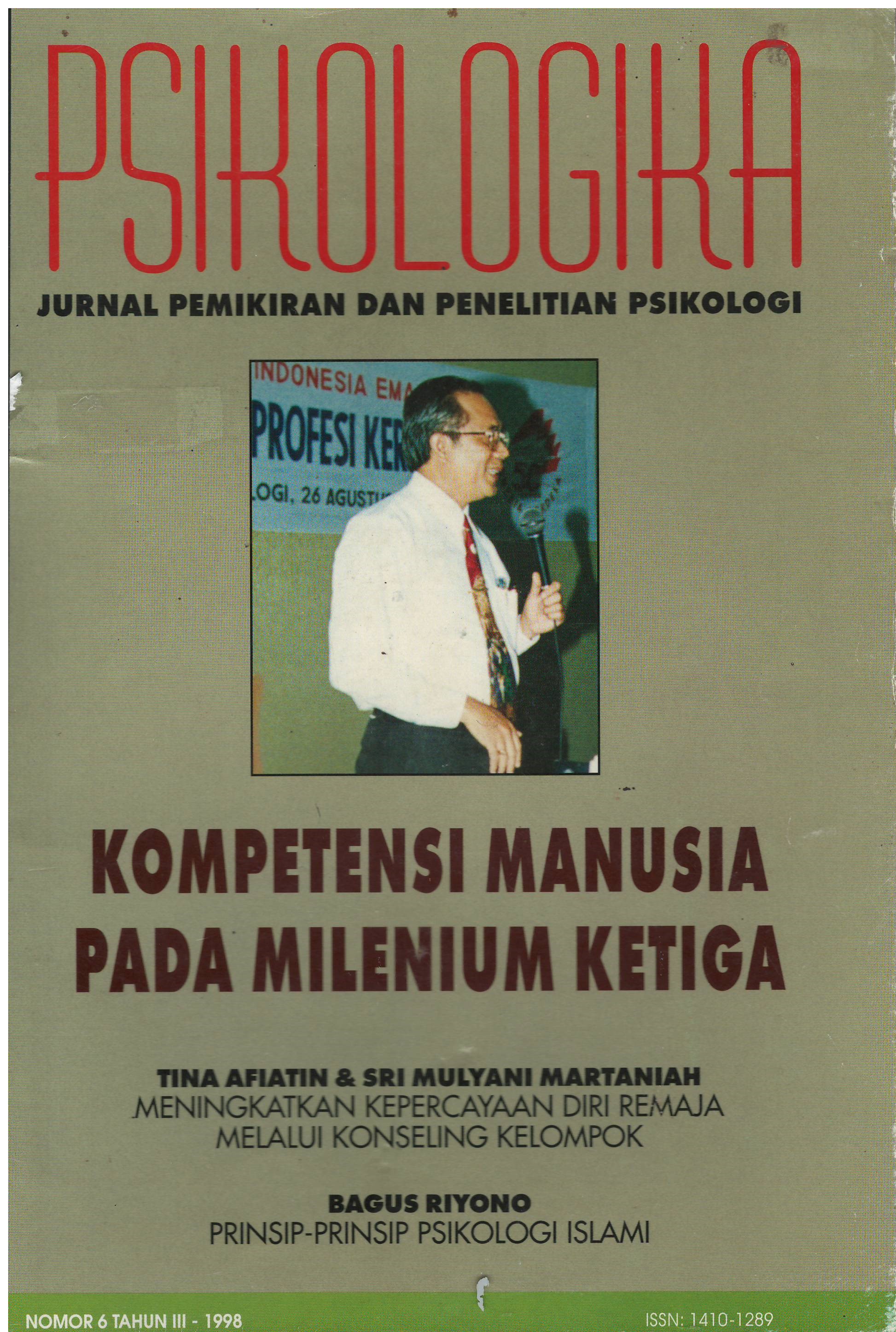Main Article Content
Abstract
Pilot studies revealed that a great deal of psychological problems In
adolescence stem from lack of self-confidence. The studies also found ·
that peer groups could function both as social support and as a change
agent tor adolescent. Those findings suggested that group conseling
can be used as an alternative intervention to improve self-confidence
among adolescents.
The present study tested the efficacy of group counseling in inÂ
creasing adolescents' self-confidence. Twenty two students of SMA PIRI
I Yogyakarta who exhibited lack of self-confidence participated in the
experimental and control groups. Each group consisted of 11 students.
Self-confidence, self-concept, and self-esteem were the dependent
measure. Testing were administered 4 times, before treatment, right
after treatment, one month after treatment and three months after treatÂ
ment. Behavioral changes were observed through daily record as well
as-observer's rating of subjects behavior during counseling sessions.
T-test with gain scores indicated that the Increase in confidence
differed significantly between experimental and control groups (t = 5.01;
p < 0.05). Experimental group (( = 28.64) showed higher increase in
self-confidence than control group (( = 1.27). The same pattern was
shown for self-concept and self-esteem measures. Behavioral rating
scale Indicated an increase In self-confidence among subjects of exÂ
perimental group.
Key words: Self-Confidence - Adolescence - Group Counseling.
adolescence stem from lack of self-confidence. The studies also found ·
that peer groups could function both as social support and as a change
agent tor adolescent. Those findings suggested that group conseling
can be used as an alternative intervention to improve self-confidence
among adolescents.
The present study tested the efficacy of group counseling in inÂ
creasing adolescents' self-confidence. Twenty two students of SMA PIRI
I Yogyakarta who exhibited lack of self-confidence participated in the
experimental and control groups. Each group consisted of 11 students.
Self-confidence, self-concept, and self-esteem were the dependent
measure. Testing were administered 4 times, before treatment, right
after treatment, one month after treatment and three months after treatÂ
ment. Behavioral changes were observed through daily record as well
as-observer's rating of subjects behavior during counseling sessions.
T-test with gain scores indicated that the Increase in confidence
differed significantly between experimental and control groups (t = 5.01;
p < 0.05). Experimental group (( = 28.64) showed higher increase in
self-confidence than control group (( = 1.27). The same pattern was
shown for self-concept and self-esteem measures. Behavioral rating
scale Indicated an increase In self-confidence among subjects of exÂ
perimental group.
Key words: Self-Confidence - Adolescence - Group Counseling.
Article Details
License
Authors who publish with this journal agree to the following terms:
- Authors retain copyright and grant the journal right of first publication with the work simultaneously licensed under a Creative Commons Attribution-ShareAlike 4.0 International License that allows others to share the work with an acknowledgment of the work's authorship and initial publication in this journal.
- Authors are able to enter into separate, additional contractual arrangements for the non-exclusive distribution of the journal's published version of the work (e.g., post it to an institutional repository or publish it in a book), with an acknowledgment of its initial publication in this journal.
- Authors are permitted and encouraged to post their work online (e.g., in institutional repositories or on their website) prior to and during the submission process, as it can lead to productive exchanges, as well as earlier and greater citation of published work (See The Effect of Open Access).




